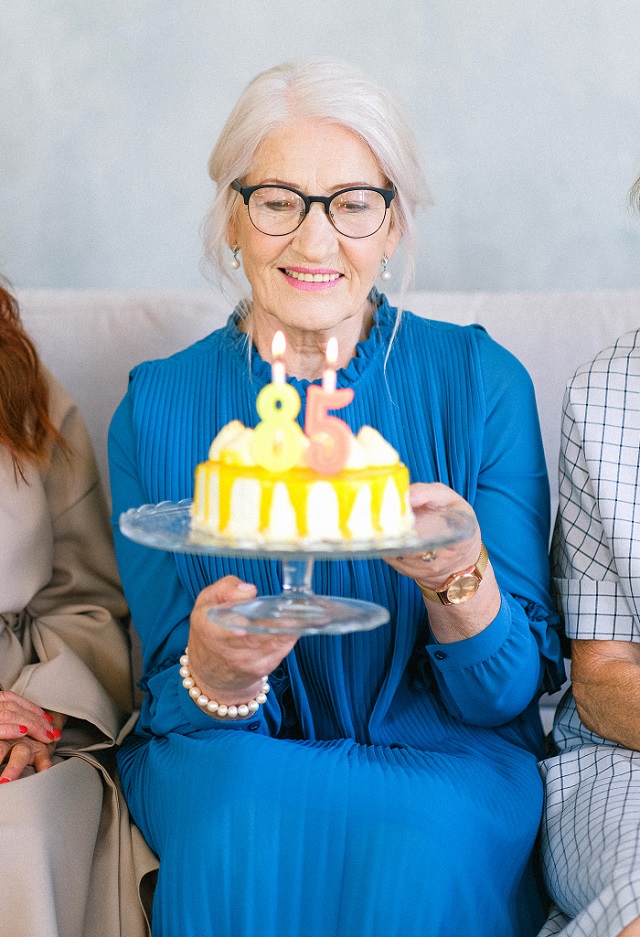The mental and physical struggles of the elderly
The mental and physical struggles of the elderly
The mental and physical struggles of the elderly
There are more elderly people in the world today than ever before. Despite advances in medicine and increased life expectancy, older adults still experience a plethora of health problems.
It’s not just physical health issues that come with age. Recently, there has been an increase in the incidence of mental health problems among older adults, not to mention the age-related cognitive decline.

Photo by Anna Shvets from Pexels
Despite advances in medicine, there is no cure for aging. Currently, modern medicine can treat most health conditions, but cannot cure them. Conditions such as cancer, heart disease, and osteoarthritis can be treated with medication, but sometimes cannot be prevented.
Although for many older adults, some age-related diseases are unavoidable. Hearing loss, vision impairment, and mobility limitations affect most older adults.
Depending on their lifestyle, genetics, and family history, older adults may be more prone to more specific health conditions than others. For example, those with a family history of cardiovascular disease are inherently susceptible to the disease.
Whether you’re entering adulthood on your own or have an older relative, it’s important to understand the common health problems older adults face. This way, you can take preventive steps to maximize your or your loved one’s health.
Here are some of the physical and mental struggles common to older adults.
1. Joint pain and limited mobility
Most older adults cannot move around as well as they did when they were younger. Usually, this is because of joint pain and limited range of motion around the joint.
Osteoarthritis, a disease that causes swelling and pain in the joints, affects more than half of older adults. When joints are sore and swollen, it can be difficult to move them effectively. As a result, older adults may struggle with limited mobility.
Unfortunately, osteoarthritis only gets worse over time as the joints become more worn out. Due to limited mobility, many older adults become afraid of pain and fear of falling.
While there are few ways to prevent osteoarthritis, medications can be used to reduce inflammation and manage pain, thereby improving the quality of life in older adults. Home improvements can be made to help seniors move around at home.
For example, handrails are ideal for use at home to provide extra stability. A walk-in shower-tub combination can make bathing safer, and a stair lift is perfect for eliminating the need for older adults to climb stairs.
Following a healthy lifestyle, maintaining a healthy weight, and eating a nutrient-dense diet can all help eliminate stress or joint wear and tear. When your joints stay healthy, it reduces your risk of osteoarthritis and helps you maintain good mobility into adulthood.
2. Hearing loss
Deafness can occur at any time in a person’s life, and some people are born without full hearing due to genetic conditions or developmental abnormalities. However, the incidence of hearing loss increases with age.
In age-related hearing loss, older adults begin to lose parts of their hearing. Often, the first symptom is a loss of the ability to perceive high-frequency sounds, such as birds chirping outside or someone whistling.
Another common symptom of age-related hearing loss is the inability to distinguish similar-sounding consonants such as “f,” “d,” and “s.” To address this, hearing aids and hearing aids may be helpful.
3. Depression and mental health disorders
Mental health disorders affect people of all ages and backgrounds. However, the prevalence of depression among older adults is high, most likely due to social isolation that develops with age.
Many older adults have very limited interactions with other people. They spend most of their time at home alone because they are unlikely to go out and explore even if they want to.
Depression may be more of a concern for older adults who have no family or have limited support from loved ones. Due to a lack of emotional and social support, older adults can feel lonely, isolated and depressed.
The best way to prevent depression in a loved one or yourself as you get older is to build a strong support network. Participate in community events and connect with old friends for social support.
When an older person is surrounded by more people and has access to the physical, emotional and social support they need, they are significantly less likely to develop depression. They will also feel more confident about going out and trying new things.

Photo by Pixabay
4. Cognitive decline and memory loss
Your brain shrinks as you age, especially if you don’t take the right steps to keep it healthy and active. Because of this shrinkage of brain tissue, old age is often accompanied by a decline in cognitive function and a decline in memory.
Your elderly loved ones may start to forget the names of people or places. They may be slower to process what you say to them or take longer to respond to various stimuli. These are key signs to consider in old age.
While cognitive decline cannot always be prevented, maintaining a healthy lifestyle and keeping your brain active can reduce the rate of decline. Make sure you or your elderly loved one practice brain-stimulating activities such as quizzes, board games, or online brain training games.
Exercise is also very important for keeping brain tissue active and thriving. Hobbies like playing a musical instrument or knitting can also promote the maintenance and growth of brain tissue as you age.
Keep it up Artkraft
Discover more articles in our categories DIY Home & DIY Projects ou encore Tips & Crafts .
Thanks for visiting we hope our article The mental and physical struggles of the elderly
, think about share the article on Facebook, twitter and whatsapp with the hashtag ☑️ #mental #physical #struggles #elderly ☑️!


